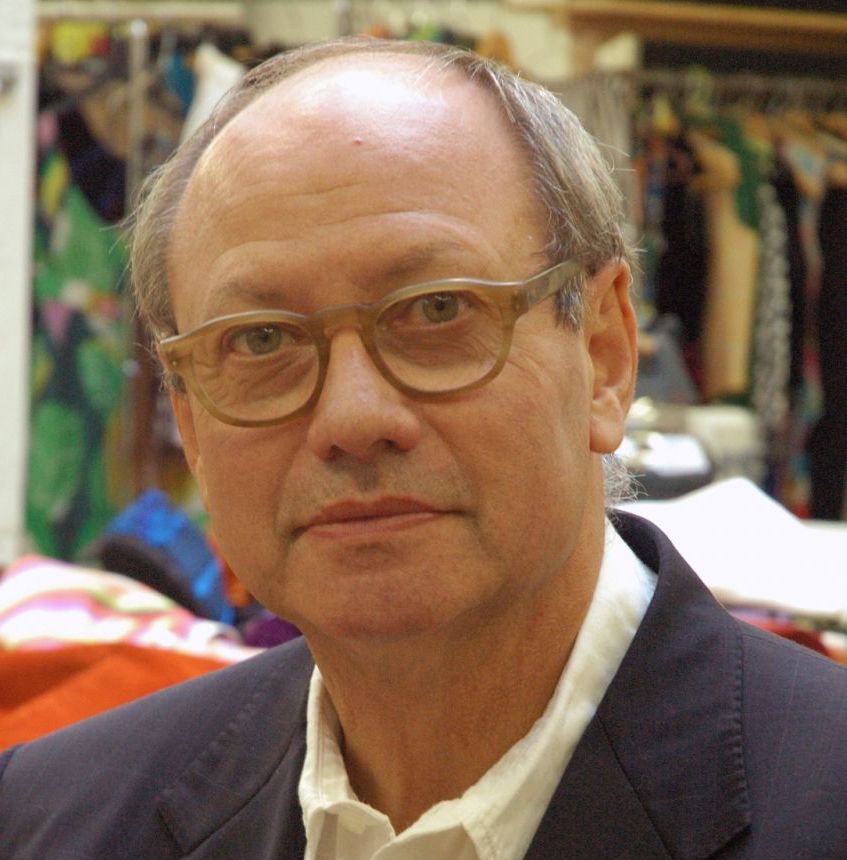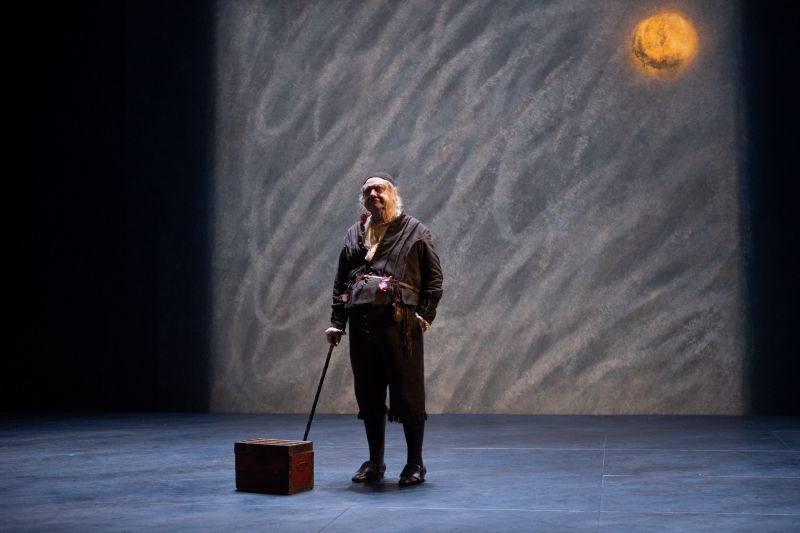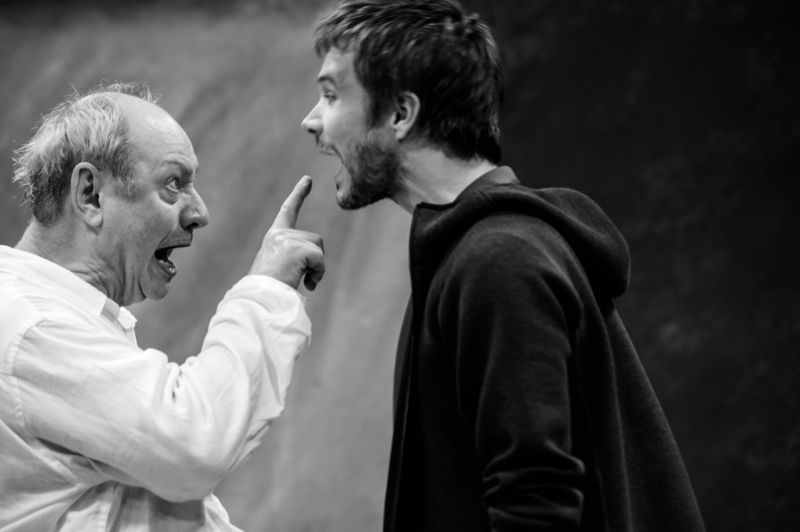Jérôme Deschamps

Humor squaring off against the cruelty of life, the insistence on being happy despite all our failures, and the pleasure of play: these are the unmistakable hallmarks of the actor, theater director, writer, and filmmaker Jérôme Deschamps, along with a taste for gags, for objects and words that resist, and for lost souls. His most recent production, Bouvard et Pécuchet, based on Flaubert, does not depart from the poetics he invented for himself.
Since founding his company with Macha Makeïeff in 1978, he has been making plays about life’s grand aspirations, seen on a microscopic level. To do so, he has chosen the comedic approach, restoring comedy’s respectability on the contemporary stage. In Deschamps’s work, the little people are in the spotlight—the clumsy, the unhandy handymen, the lonely—all the anti-heroes who made up the Deschiens tribe, a legendary lineage and a cult TV series. The titles of his productions are odes to the “minor”: La Veillée, Lapin chasseur, Les Frères Zénith, C’est magnifique, Les Etourdis, Les Petits pas…
Theater is his childhood attic. He admired his uncle, the actor Hubert Deschamps, a pillar of comedy, including in the most stylish boulevard comedies. Jacques Tati, the actor-filmmaker famous for his daydreamer’s take on slapstick, was his mother’s cousin by marriage (Deschamps later committed to restoring and distributing his films). In his school years at the Lycée Louis Le Grand, he participated in the school’s theater workshop with Patrice Chéreau and Jean-Pierre Vincent. After studying acting at the famed “école de la Rue Blanche” and the Conservatoire National Supérieur, he joined the Comédie Française, where he stayed for three years and acted in Claudel’s Break of Noon under the direction of Antoine Vitez. Vitez took notice of Deschamps and, in 1979, commissioned the first production of La Famille Deschiens.
Deschamps occasionally turns to the classics he has loved since his youth, including Labiche, Courteline, and Molière. He also has a musical ear and has directed operas including Offenbach’s Les Brigands and Mozart’s Abduction from the Seraglio. After directing the Théâtre de Nîmes from 2003 to 2007, then the Opéra Comique in Paris (where he revived a neglected repertoire), he returned in 2015 to working with a company. More than forty years on and off the stage have not dampened his enthusiasm for theater, including as an actor

